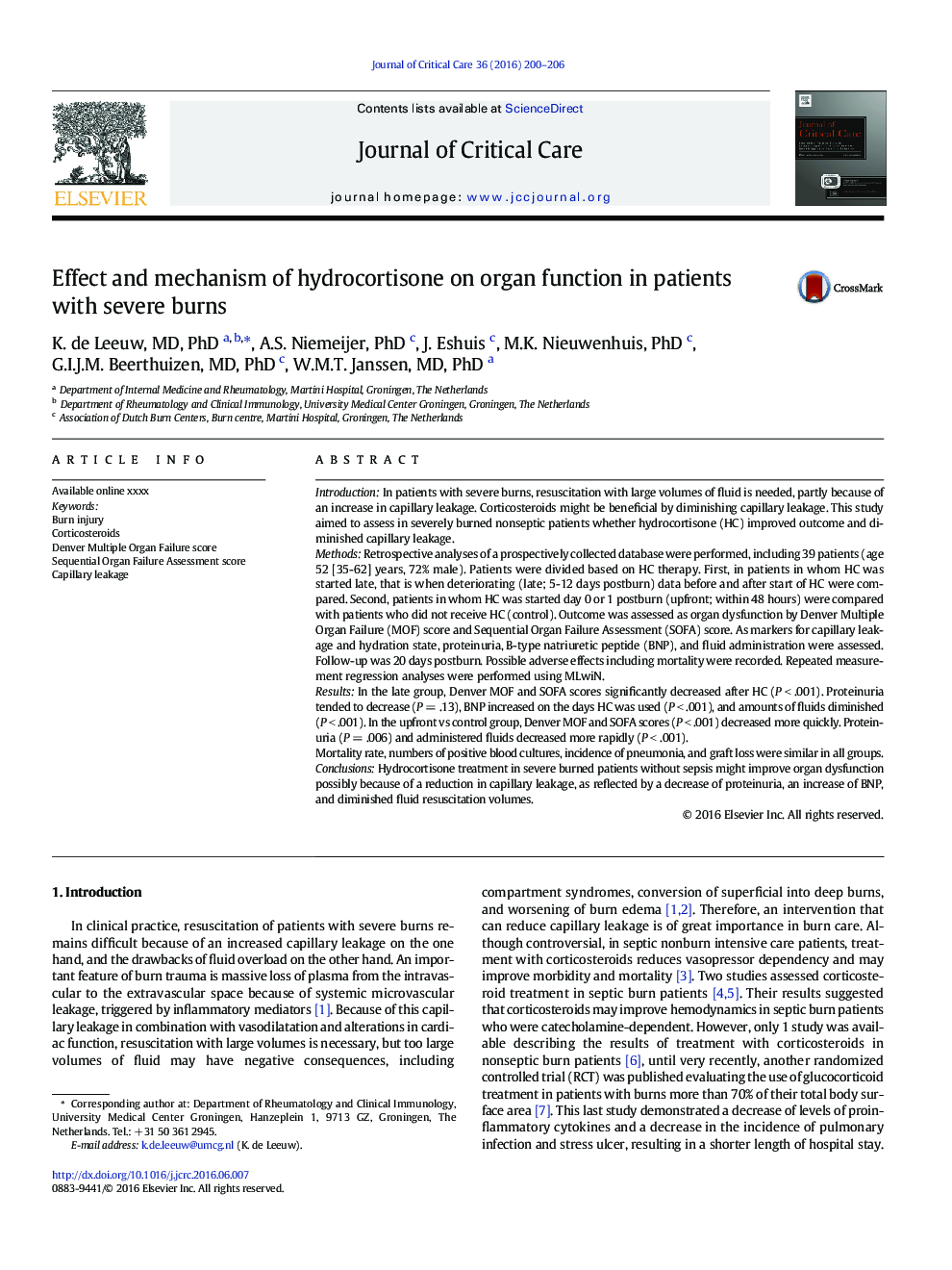| کد مقاله | کد نشریه | سال انتشار | مقاله انگلیسی | نسخه تمام متن |
|---|---|---|---|---|
| 2764404 | 1567676 | 2016 | 7 صفحه PDF | دانلود رایگان |
IntroductionIn patients with severe burns, resuscitation with large volumes of fluid is needed, partly because of an increase in capillary leakage. Corticosteroids might be beneficial by diminishing capillary leakage. This study aimed to assess in severely burned nonseptic patients whether hydrocortisone (HC) improved outcome and diminished capillary leakage.MethodsRetrospective analyses of a prospectively collected database were performed, including 39 patients (age 52 [35-62] years, 72% male). Patients were divided based on HC therapy. First, in patients in whom HC was started late, that is when deteriorating (late; 5-12 days postburn) data before and after start of HC were compared. Second, patients in whom HC was started day 0 or 1 postburn (upfront; within 48 hours) were compared with patients who did not receive HC (control). Outcome was assessed as organ dysfunction by Denver Multiple Organ Failure (MOF) score and Sequential Organ Failure Assessment (SOFA) score. As markers for capillary leakage and hydration state, proteinuria, B-type natriuretic peptide (BNP), and fluid administration were assessed. Follow-up was 20 days postburn. Possible adverse effects including mortality were recorded. Repeated measurement regression analyses were performed using MLwiN.ResultsIn the late group, Denver MOF and SOFA scores significantly decreased after HC (P < .001). Proteinuria tended to decrease (P = .13), BNP increased on the days HC was used (P < .001), and amounts of fluids diminished (P < .001). In the upfront vs control group, Denver MOF and SOFA scores (P < .001) decreased more quickly. Proteinuria (P = .006) and administered fluids decreased more rapidly (P < .001).Mortality rate, numbers of positive blood cultures, incidence of pneumonia, and graft loss were similar in all groups.ConclusionsHydrocortisone treatment in severe burned patients without sepsis might improve organ dysfunction possibly because of a reduction in capillary leakage, as reflected by a decrease of proteinuria, an increase of BNP, and diminished fluid resuscitation volumes.
Journal: Journal of Critical Care - Volume 36, December 2016, Pages 200–206
